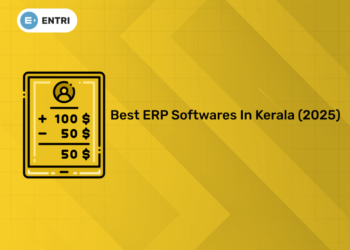Table of Contents
Quantity surveying is crucial in construction. It ensures projects stay on budget and schedule. Galfar is a top company in the Middle East. It is a leading engineering, contracting, and construction company. It is known for its rigorous hiring process for quantity surveyors. Preparing for an interview at Galfar requires:
- an understanding of the company’s expectations.
- understanding the nature of the job, and
- familiarity with the types of questions that might be asked.
This guide will help you with Galfar Quantity Surveying Interview Questions & Answers.
Galfar Quantity Surveying Interview Questions & Answers
Interview Selection Process
1. Application Submission
The first step is to submit your application online. This includes your resume and a cover letter. Resume must be tailored to the Quantity Surveyor position. Make sure your resume highlights:
- Relevant experience.
- Skills, and qualifications that align with the job requirements.
2. Initial Screening
In step two the HR team conducts an initial screening of your application. They assess your:
- Educational background
- Relevant experience, and
- Suitability for the role.
Only candidates who meet the basic criteria get selected for the next stage.
3. Telephonic Interview
Shortlisted candidates are called for a telephonic interview. This stage assesses the communication skills and understanding of the role of the applicant. Be prepared to discuss:
- your experience
- your career goals
- and why you’re interested in working at Galfar.
4. Technical Assessment
After the telephonic interview, you will have a technical round. This could involve tasks like cost estimation, tender evaluation, or other relevant exercises. The assessment is designed to test your
- Practical knowledge and
- Technical skills as a Quantity Surveyor.
5. In-Person Interview
Candidates who perform well in the technical assessment are called for an in-person interview. This interview typically involves a panel of experts. They will question on your:
- Technical skills
- Industry knowledge, and
- Problem-solving abilities.
Expect in-depth discussions about your previous project experience and how you handled challenges.
6. HR Interview
The final stage usually involves an interview with the HR . This interview focuses on:
- Your fit within the company’s culture
- Salary expectations, and
- your overall career aspirations.
It’s also an opportunity to discuss benefits, work environment, and any other queries you might have about the company.
7. Offer & Onboarding
If you successfully pass all previous stages, you will get a formal job offer. When you accept the offer, the onboarding process begins, which includes familiarizing yourself with Galfar’s policies, procedures, and the specifics of your role within the team. This marks the beginning of your journey as a Quantity Surveyor at Galfar.
Start a rewarding career in Quantity Surveying! Book for Free Demo Classes Here!
Galfar Quantity Surveying Interview Questions and Answers
1. What are the key responsibilities of a Quantity Surveyor?
- Answer:
- Managing project finances and contracts.
- Preparing cost estimates and budgets.
- Conducting feasibility studies.
- Monitoring project progress and controlling costs.
- Valuing completed work and arranging payments.
2. How do you ensure cost control in a project?
- Answer:
- Implementing regular cost monitoring and reporting.
- Comparing actual costs with budgeted amounts.
- Identifying cost variances and taking corrective actions.
- Collaborating with project managers to optimize resource allocation.
3. Explain the process of tendering in construction.
- Answer:
- Preparation: Develop tender documents and specifications.
- Invitation: Invite qualified contractors to submit bids.
- Evaluation: Assess the received tenders based on cost and qualifications.
- Award: Award the contract to the most suitable bidder.
4. What methods do you use for cost estimation?
- Answer:
- Preliminary Estimates: Based on historical data and standard rates.
- Detailed Estimates: Utilizing quantity take-offs and unit rates.
- Approximate Methods: Applying square footage or cubic meter rates.
5. How do you handle variations in a contract?
- Answer:
- Assessing the impact of variations on cost and time.
- Negotiating with contractors to agree on fair adjustments.
- Documenting all changes and obtaining necessary approvals.
6. Describe a challenging project you worked on and how you managed it.
- Answer:
- Provide a specific example.
- Focus on the challenges faced.
- Highlight your role in resolving issues.
- Discuss the outcome and lessons learned.
7. How do you ensure accurate measurement in Quantity Surveying?
- Answer:
- Using precise measurement techniques and tools.
- Cross-verifying measurements with design drawings.
- Regularly checking and updating measurements during the project.
8. What software tools are you proficient in for Quantity Surveying?
- Answer:
- AutoCAD: For creating and reading technical drawings.
- MS Excel: For budgeting and cost analysis.
- Primavera: For project management and scheduling.
- CostX: For cost estimation and quantity take-off.
9. How do you manage stakeholder expectations in a project?
- Answer:
- Establishing clear communication channels.
- Setting realistic timelines and budgets.
- Regularly updating stakeholders on project progress.
- Addressing concerns and resolving issues promptly.
10. Explain the importance of cash flow management in a construction project.
- Answer:
- Ensures the availability of funds for ongoing work.
- Prevents delays due to financial constraints.
- Facilitates timely payments to suppliers and subcontractors.
- Helps in forecasting future financial needs.
11. How do you conduct a feasibility study for a new project?
- Answer:
- Assessing the project’s potential costs and revenues.
- Analyzing risks and their impact on the project.
- Evaluating the legal and environmental constraints.
- Preparing a detailed report to support decision-making.
12. What is your experience with contract management?
- Answer:
- Drafting and reviewing contract documents.
- Ensuring compliance with contract terms.
- Managing contract variations and claims.
- Negotiating terms with clients and contractors.
13. How do you handle disputes during a project?
- Answer:
- Preventive Measures: Clear documentation and communication.
- Mediation: Facilitating negotiations between conflicting parties.
- Legal Action: Engaging legal experts if necessary, while aiming for settlement.
14. What strategies do you use to optimize project costs?
- Answer:
- Efficient resource allocation.
- Negotiating better rates with suppliers.
- Implementing waste reduction measures.
- Using value engineering to achieve cost savings without compromising quality.
15. Can you explain the concept of life cycle costing?
- Answer:
- Life Cycle Costing (LCC): Evaluating total project costs over its lifetime.
- Components: Includes initial costs, maintenance, operation, and disposal.
- Purpose: Helps in making cost-effective decisions by considering long-term implications.
16. How do you ensure compliance with building regulations and standards?
- Answer:
- Staying updated with local and international regulations.
- Incorporating standards in project planning and execution.
- Regular inspections and audits to ensure adherence.
17. What role does a Quantity Surveyor play in risk management?
- Answer:
- Identifying potential risks early in the project.
- Assessing the impact of risks on cost and schedule.
- Developing mitigation strategies to minimize risks.
- Monitoring and reviewing risks throughout the project lifecycle.
18. How do you prioritize tasks in a fast-paced project environment?
- Answer:
- Assessing task urgency and importance.
- Creating a detailed work schedule.
- Delegating tasks when necessary.
- Regularly reviewing and adjusting priorities.
19. What experience do you have with value engineering?
- Answer:
- Involvement in workshops to identify cost-saving opportunities.
- Analyzing alternatives that provide the same function at a lower cost.
- Collaborating with design and engineering teams to implement changes.
20. How do you manage project documentation?
- Answer:
- Organizing documents systematically for easy retrieval.
- Maintaining accurate and up-to-date records.
- Ensuring all documentation complies with company policies and legal requirements.
- Using digital tools to manage and track documents effectively.
21. How do you calculate the quantities for excavation in a construction project?
- Answer:
- Start by reviewing the site plans and cross-sections.
- Use formulas based on area and depth for various sections.
- Consider the type of soil and method of excavation.
- Adjust calculations for any sloping surfaces or irregular areas.
Start a rewarding career in Quantity Surveying! Book for Free Demo Classes Here!
22. What is the significance of the Bill of Quantities (BOQ) in construction?
- Answer:
- The BOQ provides detailed itemized lists of materials and labor.
- It serves as a basis for tendering and cost control.
- BOQs ensure transparency and accuracy in cost estimation.
- They help in avoiding disputes by clearly defining scope.
23. How do you handle discrepancies between drawings and actual site conditions?
- Answer:
- Conduct a site inspection to understand the discrepancy.
- Communicate with the design and project teams to discuss the issue.
- Propose solutions or adjustments based on practical considerations.
- Document changes and obtain necessary approvals before proceeding.
24. What is the importance of conducting a site visit before starting a project?
- Answer:
- A site visit helps identify potential challenges or constraints.
- It allows for accurate assessment of existing conditions.
- Site visits enable better planning of logistics and resources.
- They ensure alignment of the project scope with site realities.
25. Explain the difference between gross and net measurements in Quantity Surveying.
- Answer:
- Gross Measurements: Include all areas without deductions for openings.
- Net Measurements: Deducts areas for openings like doors and windows.
- Gross is used for overall cost estimates, while net is for precise billing.
- Understanding both is crucial for accurate cost management.
26. How do you ensure accuracy in cost forecasts for long-term projects?
- Answer:
- Regularly update cost forecasts based on actual project data.
- Consider inflation and market trends in material and labor costs.
- Use contingency allowances to cover unforeseen expenses.
- Collaborate with financial teams to review and refine forecasts.
27. What are the common types of contracts used in construction projects?
- Answer:
- Lump Sum: A fixed price for the entire project.
- Cost Plus: Costs incurred plus a fee or percentage.
- Unit Price: Payment based on quantities of work completed.
- Design-Build: Combines design and construction under one contract.
28. How do you approach the valuation of variations in a construction contract?
- Answer:
- Review the contract terms regarding variations.
- Measure the additional work required due to the variation.
- Estimate costs using standard rates and current market prices.
- Negotiate with contractors to agree on fair compensation.
29. What is the role of a Quantity Surveyor in project scheduling?
- Answer:
- Assist in aligning the budget with the project timeline.
- Monitor costs against the schedule to avoid overruns.
- Provide input on resource allocation based on financial constraints.
- Help identify potential delays that could impact costs.
30. How do you ensure compliance with safety standards in cost planning?
- Answer:
- Incorporate safety measures into the cost estimates.
- Budget for necessary safety equipment and training.
- Consider the financial impact of potential safety incidents.
- Work with safety officers to ensure alignment with regulations.
31. Explain the concept of retention in construction contracts.
- Answer:
- Retention is a portion of payment withheld until project completion.
- It ensures that contractors complete work to the required standard.
- Retention amounts are typically released after the defects liability period.
- It’s a risk management tool to safeguard against poor workmanship.
32. How do you assess the financial health of a contractor?
- Answer:
- Review financial statements, including balance sheets and income statements.
- Evaluate liquidity ratios and cash flow to gauge financial stability.
- Consider the contractor’s credit history and debt levels.
- Look at past project performance and any legal issues.
33. What methods do you use to prepare a project cash flow forecast?
- Answer:
- Analyze the project schedule and identify payment milestones.
- Estimate monthly expenditures based on work progress.
- Consider timing of payments to suppliers and subcontractors.
- Adjust the forecast as the project evolves and actual costs are incurred.
34. How do you ensure the quality of materials used in construction?
- Answer:
- Specify materials according to project requirements in the BOQ.
- Conduct regular inspections and tests to verify material quality.
- Work closely with suppliers to ensure timely and quality deliveries.
- Maintain records of material approvals and certifications.
35. What strategies do you employ to minimize wastage on a construction site?
- Answer:
- Implement careful planning and accurate ordering of materials.
- Monitor and control inventory to prevent over-ordering.
- Train workers on efficient material usage and waste reduction techniques.
- Recycle or reuse materials where possible to reduce waste.
Few Interview Tips
Research the Company:
- Understand Galfar’s projects, values, and work culture.
- Familiarize yourself with their recent projects and achievements.
Prepare for Technical Questions:
- Review fundamental concepts and latest industry practices.
- Practice calculations, estimations, and technical scenarios.
Practice Common Questions:
- Anticipate typical Quantity Surveyor interview questions.
- Formulate concise and structured answers.
Showcase Your Experience:
- Highlight your relevant project experience with specific examples.
- Emphasize your role and contributions to project success.
Enhance Your Communication Skills:
- Clearly articulate your thoughts and ideas.
- Practice explaining complex concepts in simple terms.
Be Honest About Your Skills:
- Don’t exaggerate your proficiency in tools or techniques.
- Acknowledge areas for improvement and your plans to address them.
Prepare Questions for the Interviewer:
- Ask about the team structure, project challenges, and growth opportunities.
- Inquire about the company’s future projects and your potential role.
Dress Professionally:
- Wear formal attire appropriate for a corporate interview.
- Ensure your appearance reflects professionalism and attention to detail.
Stay Calm Under Pressure:
- Practice stress management techniques.
- Take a moment to think before answering difficult questions.
Follow-Up After the Interview:
- Send a thank-you email expressing appreciation for the opportunity.
- Reiterate your interest in the position and briefly summarize why you’re a good fit.
Start a rewarding career in Quantity Surveying! Book for Free Demo Classes Here!
Galfar Quantity Surveying Interview Questions and Answers: Conclusion
1: What is the main purpose of a Bill of Quantities (BoQ)?
Succeeding in a Quantity Surveyor interview at Galfar requires thorough preparation and a clear understanding of the role. By focusing on key responsibilities, sharpening your technical skills, and practicing commonly asked questions, you can approach the interview with confidence. Remember to present yourself professionally, communicate effectively, and show a genuine enthusiasm for the role. Being well-prepared not only shows your commitment but also helps you stand out as a strong candidate.
All the best for your interview!!
Master Quantity Surveying – Build a Rewarding Career Today!
Gain in-demand skills in cost estimation, project budgeting, and contract management with our Quantity Surveying Course. Learn from industry experts and boost your career in construction and infrastructure. Enroll now and take the first step toward success!
Know MoreFrequently Asked Questions
What type of questions can I expect in a Galfar Quantity Surveying interview?
- Technical Skills: Questions related to quantity take-offs, cost estimation, and contract management.
- Software Proficiency: Queries about experience with software like MS Excel, AutoCAD, and specialized QS tools.
- Project Experience: Discussion on previous projects, including roles, challenges faced, and how they were managed.
- Problem-Solving: Situational questions to assess problem-solving skills and decision-making abilities.
- Industry Knowledge: Questions about current industry trends, regulations, and best practices in quantity surveying.
How does Galfar evaluate a candidate's technical expertise during the interview?
- Practical Tests: You might be given a case study or practical test related to quantity surveying tasks.
- Detailed Questions: Expect in-depth questions on estimating methods, rate analysis, and quantity calculations.
- Past Experience: Discussion of past project work, focusing on technical challenges and solutions.
- Problem-Solving Scenarios: Situational questions to demonstrate your approach to technical issues.
- Software Skills: Questions or tasks to test your proficiency with relevant software tools.
What are some common behavioral questions asked in the interview?
- Teamwork: Examples of how you’ve worked with a team to achieve project goals.
- Conflict Resolution: Situations where you resolved conflicts or disagreements in a project setting.
- Time Management: How you prioritize tasks and manage time to meet deadlines.
- Leadership: Instances where you led a project or team and how you handled the responsibilities.
- Adaptability: Examples of how you adapted to changes or unexpected issues in a project.
How important is knowledge of industry regulations and standards in the interview?
- High Importance: Galfar values candidates who are knowledgeable about industry regulations and standards.
- Relevant Questions: Expect questions on regulations such as FIDIC contracts, local building codes, and safety standards.
- Application: How you apply these regulations in your work, including compliance and quality assurance.
- Current Trends: Awareness of recent changes or updates in industry standards.
- Impact: How adhering to standards impacts project outcomes and cost management.
What should I prepare for to succeed in a Galfar Quantity Surveying interview?
- Technical Knowledge: Brush up on quantity surveying principles, cost estimation, and contract management.
- Project Examples: Be ready to discuss detailed examples of past projects, your role, and the outcomes.
- Software Skills: Ensure you’re comfortable with industry-standard software and tools.
- Regulations: Review relevant industry regulations and standards applicable to your role.
- Behavioral Insights: Prepare for behavioral questions by reflecting on past experiences and how they demonstrate your skills and competencies.























